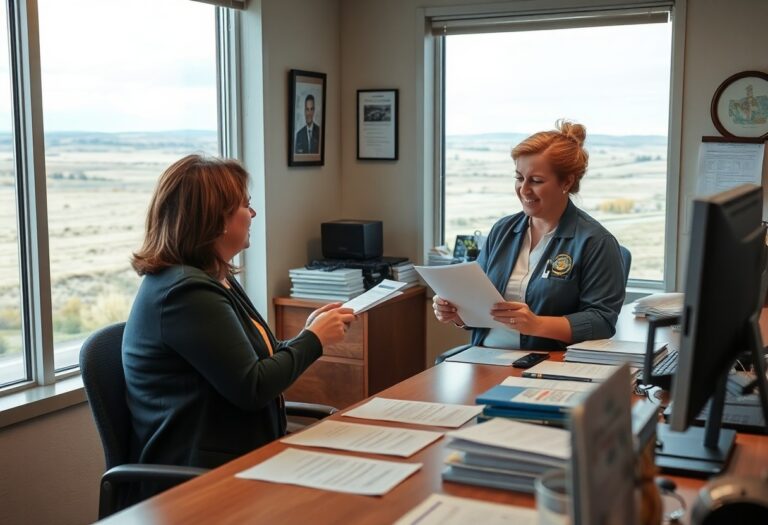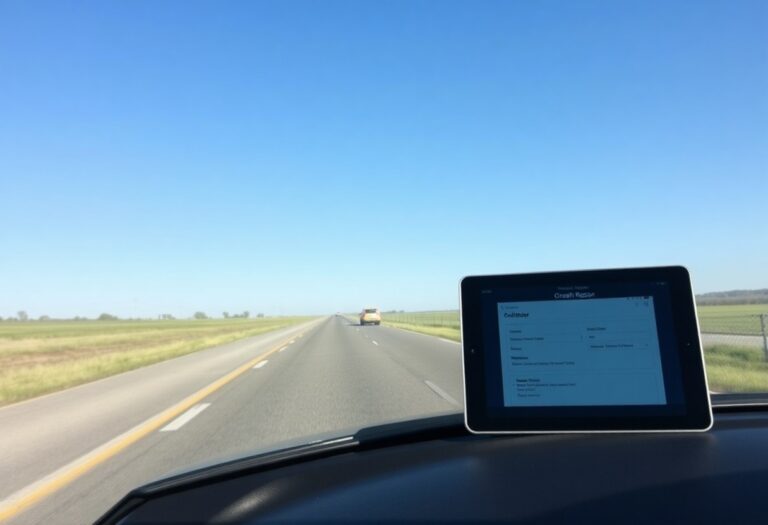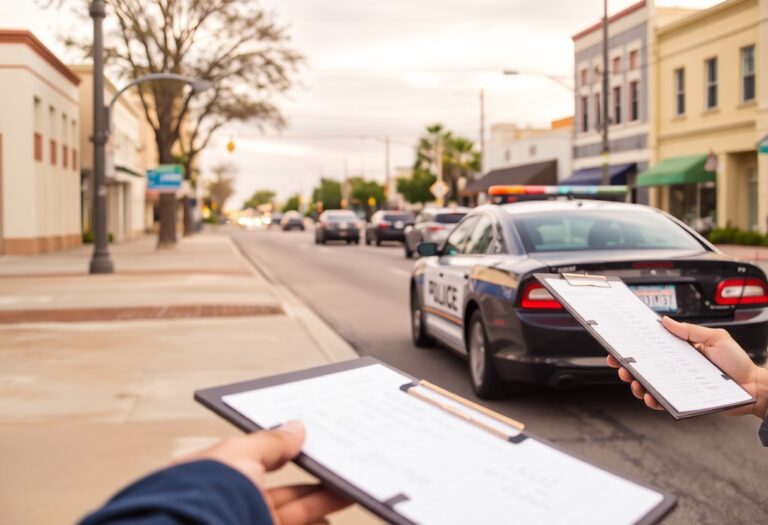With the right knowledge, navigating the process of filing car accident reports in Kerr County, Texas can be straightforward and manageable. If you find yourself involved in an accident, understanding the specific steps required can ensure that your rights are protected and necessary documentation is completed efficiently. This guide provides you with a clear, step-by-step approach to handling your report, helping you to mitigate any complications that may arise during this challenging time.
Navigating the Aftermath: Immediate Steps Post-Accident
After a car accident in Kerr County, you must focus on specific immediate steps to safeguard your well-being and gather necessary information. Prioritize assessing injuries and ensuring everyone involved is safe, then move on to documenting the scene and reporting the incident effectively. Acting quickly can aid your recovery by securing clear evidence for insurance claims and potential legal matters.
Ensuring Safety and Health Priorities
Your first actions after an accident should always center around ensuring safety for yourself and others. Assess injuries and call for emergency services if needed. If you’re able, move to a safe location away from traffic to prevent further incidents. Checking on others involved is paramount, as a swift response can assist in providing necessary medical attention.
Documenting the Scene Effectively
Detailing the accident scene can substantially bolster your case for insurance claims. Start by taking clear photos of all vehicles, any visible damage, and surrounding areas. Gather contact information for witnesses and document their accounts. Note the time, date, weather conditions, and road details as these elements can significantly impact investigation outcomes and strengthen your report.
Effective documentation goes beyond just photographs. Writing down a comprehensive narrative of what occurred plays an vital role in substantiating your account. Incorporate specific details like vehicle positions, traffic signals, and the flow of traffic. These notes, along with any available witness statements, create a thorough record that can be invaluable in insurance negotiations or any potential legal proceedings. Always carry a notepad or use your phone to capture these details promptly, as memory can fade quickly under stress.
The Critical Role of the Texas Accident Report
The Texas Accident Report is a fundamental document that encapsulates necessary details about a vehicular mishap. This official record not only documents the event but also serves as a basis for insurance claims, legal proceedings, and future traffic safety initiatives. When you file your report, the information provided informs the authorities about the circumstances surrounding the accident, which can be a deciding factor in liability disputes and coverage determinations. Having a clear, accurate report is vital for your protection and for the protection of others.
What the Report Entails: Key Components Explained
A comprehensive Texas Accident Report consists of several key components that detail the event. You will find information such as the date, time, and location of the accident, contact information of the involved parties, vehicle details, and witness statements. Additionally, the report will include diagrams that illustrate the positions of the vehicles, as well as any notable road conditions or signs at the scene. Each element helps build a complete picture of the incident, which is invaluable for insurance and legal matters.
Legal Implications of Accurate Reporting
Accurate reporting can profoundly impact legal outcomes and financial responsibilities following an accident. If you misrepresent any information on your Texas Accident Report, you risk facing penalties, including fines or complications in insurance claims. Errors can lead to subpar settlements or inadequate compensation for damages. Accurate details are necessary for protecting your rights and ensuring that all parties involved are held accountable.
Inaccuracies in your report can set the stage for future disputes, complicating the claims process significantly. For example, if witness statements contradict your account or if there’s a discrepancy in vehicle details, you might face challenges in asserting your claim. Furthermore, many insurance companies rely heavily on the initial accident report to evaluate claims; any inconsistencies could lead to your claim being denied or receiving a reduced settlement offer. Therefore, ensuring all the information is correct, complete, and clearly presented is necessary for safeguarding your interests after an accident.
Securing Your Accident Report in Kerr County
After the dust settles from an accident, securing your accident report in Kerr County is your next step. These reports are vital for insurance claims and legal purposes, providing an official account of the incident. Gain access to your report swiftly to address any necessary follow-up actions, like coordinating with your insurance provider or evaluating legal options.
How to Request Your Report from Local Authorities
Requesting your report is straightforward in Kerr County. Visit the local police department or the sheriff’s office where the accident occurred. Often, you can fill out a request form in person or download it from their website. There may be a small fee associated with obtaining copies, typically around $10.
Understanding Public Access and Privacy Laws
Kerr County operates under state public access laws, making certain details of accident reports available to the public. However, sensitive information, such as personal identifiers, may be redacted to protect individuals’ privacy. Familiarizing yourself with these laws can help you understand what information you can access and any potential restrictions.
In Texas, the Public Information Act allows citizens to request access to government records, including accident reports. However, details involving ongoing investigations or confidential victim information are not subject to disclosure. Knowing these regulations aids in understanding what data you can obtain and ensures you remain compliant with any legal guidelines. The Texas Department of Transportation provides a clear framework for these proceedings, allowing you to navigate the system with confidence.
Common Pitfalls in Accident Reporting
Errors in accident reporting can lead to serious complications in your case. Missing deadlines, providing inaccurate information, or failing to document the scene thoroughly can all hinder your ability to secure compensation. Inaccuracies can bolster the opposing party’s claims, while insufficient evidence might not support your narrative. Each of these mistakes can create unnecessary obstacles that could otherwise be avoided with careful attention to detail.
Mistakes That Could Complicate Your Case
Submitting a report that lacks important details or containing incorrect data can significantly weaken your position. Common examples include forgetting to mention witnesses or misreporting the details of the accident. Such discrepancies can embolden insurance companies or opposing counsel to challenge your claims, creating hurdles that could have been easily navigated.
The Importance of Timeliness and Accuracy
Providing your car accident report promptly and with meticulous attention to detail often dictates the outcome of your case. Insurers and legal authorities will scrutinize the timeline of your report, and any delays can raise questions about credibility. Accurate documentation prevents complications and strengthens your position when pursuing compensation.
Timeliness in filing your accident report begins immediately after the incident—the faster you record the details, the fresher the information. A study by the National Highway Traffic Safety Administration found that claims filed within a week have a 40% higher chance of succeeding than those reported later. Accurate information—like photos of the scene, names of witnesses, and exact time and location—serves as vital evidence that underpins your case. Addressing these factors with precision can mean the difference between a favorable resolution and a stymied claim.
Leveraging Your Accident Report for Insurance Claims
Your accident report serves as a vital piece of documentation when dealing with insurance claims. This official record provides evidence of the incident details, including fault, damages, and injuries. Insurance adjusters will often rely heavily on this report to assess claims and determine compensation. By presenting a clear and accurate accident report, you bolster your case and increase the likelihood of receiving the compensation you deserve.
How to Use the Report to Support Your Claim
Incorporating the specific details from your accident report can substantiate your claim effectively. Reference key elements such as the police statement, witness accounts, and any photographs included in the report. Highlighting these details allows you to present a compelling narrative that aligns with the facts, making it challenging for the insurance company to dispute your claim.
Communicating with Insurance Adjusters: Best Practices
Clear and assertive communication with insurance adjusters can significantly impact your claim process. Always approach discussions with professionalism, providing concise information about the accident. Avoid oversharing or admitting fault, as these could come back to weaken your case. Always refer back to your accident report to support your statements, and if faced with pushback, calmly reiterate the facts documented.
Engaging with insurance adjusters requires a strategic approach. Providing them with direct information based on your accident report ensures clarity. Prioritize staying organized; having your documentation easily accessible can streamline conversations. Follow up in writing to summarize discussions, ensuring an official record of your communications. This vigilance demonstrates commitment and can dissuade adjusters from downplaying your claim. Most importantly, confidence in your case can foster mutual respect in these interactions, leading to a more favorable outcome.
Final Words
Following this guide will help you navigate the process of obtaining a car accident report in Kerr County, Texas. By understanding the necessary steps, from gathering relevant information to contacting the appropriate law enforcement agency, you can ensure that you obtain your report efficiently. This knowledge equips you to effectively handle any further actions or claims resulting from your accident, making the aftermath less stressful. Use this information to facilitate your interactions with authorities and streamline your recovery process.













